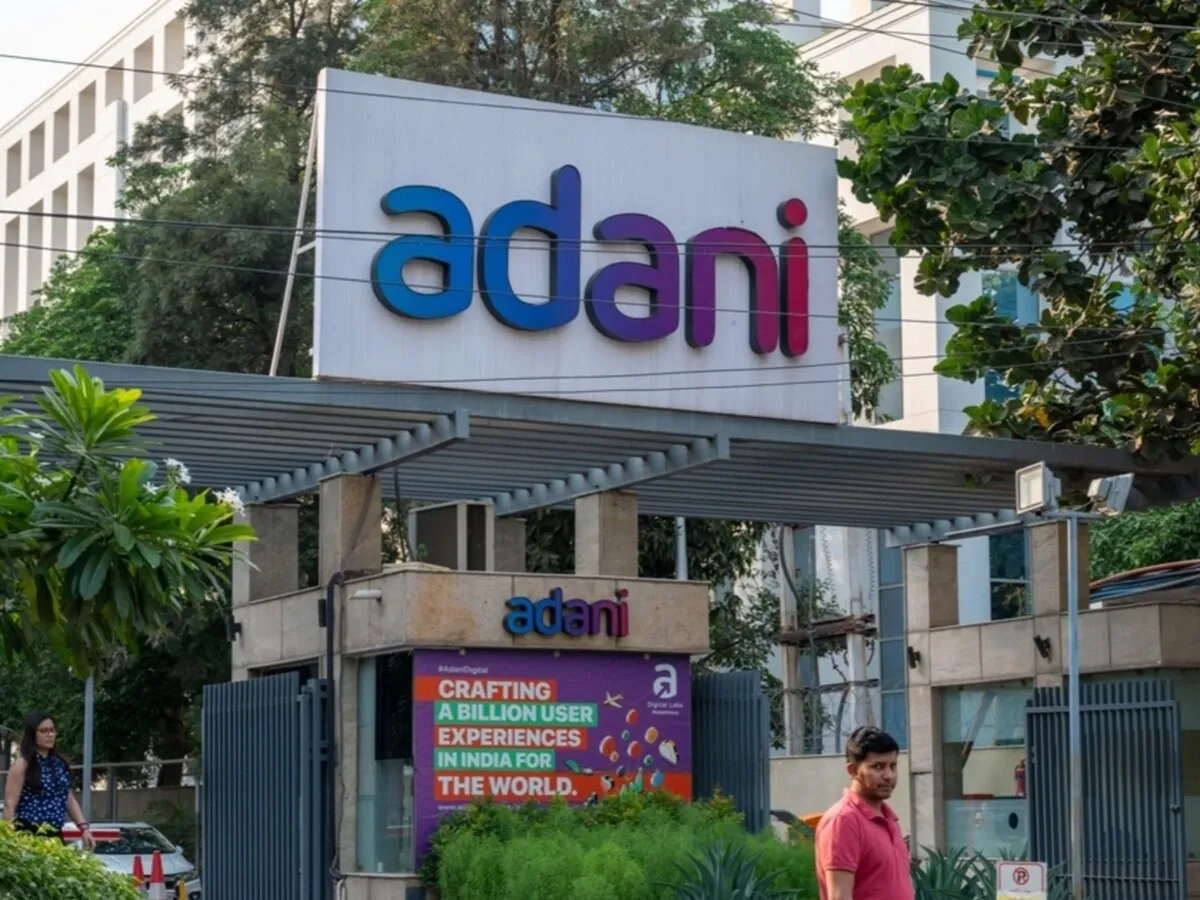Market News
Adani Energy Solutions Q2 results: Consolidated net profit declines 20.9% YoY to ₹534 crore; revenue soars 6.7%

3 min read | Updated on October 27, 2025, 18:30 IST
SUMMARY
Adani Energy Solutions' revenue from operations witnessed a 6.66% YoY surge to ₹6,595.83 crore during the quarter under review, compared to ₹6,183.70 crore in Q2FY25.
Stock list

Adani Energy Solutions has a total market capitalisation of ₹1.14 lakh crore, as of October 27, 2025, according to data on the NSE. | Image: Shutterstock
Adani Energy Solutions on Monday, October 27, reported its second quarter results for the 2025-26 financial year (Q2FY26), posting a 20.89% year-on-year (YoY) decline in its consolidated net profit to ₹533.97 crore.
In the corresponding period of the previous fiscal year, it had clocked a profit of ₹674.96 crore.
However, its revenue from operations witnessed a 6.66% YoY surge to ₹6,595.83 crore during the quarter under review, compared to ₹6,183.70 crore in the September quarter of the 2024-25 fiscal year (Q2FY25).
The company’s revenue grew due to stable operating performance across business segments and higher Service Concession Arrangement (SCA) income, it said.
Furthermore, the firm’s Q2FY26 revenue growth was more pronounced due to the full contribution from its transmission assets and better energy demand growth recorded during the quarter in its distribution circles, along with the rising contribution from its smart metering business.
Segment-wise, the Ahmedabad-headquartered firm reported a 2.99% YoY increase in its revenue from the transmission business at ₹2,371.96 crore in the second quarter of FY26.
Its revenue from the distribution business stood at ₹3,117.91 crore in Q2FY26, marking a 3.45% YoY jump, recording a steady segment performance.
The company’s revenue from the smart metering segment surged to ₹181.64 crore, as against ₹7.59 crore a year ago.
Its trading revenue, however, declined by 59.08% YoY to ₹200.61 crore during the quarter. Its revenue from other segments also fell.
At an operational level, its EBITDA (earnings before interest, tax, depreciation, and amortisation) stood at ₹2,126 crore in the September quarter of FY26, marking a 12.4% YoY jump from ₹1,891 crore for the second quarter of FY25.
The double-digit growth in EBITDA was bolstered by steady transmission and distribution revenue, growing contribution from smart meter and Engineering, Procurement, and Construction (EPC), and other income, it added.
In the smart meters business, the company installed 42.4 lakh new meters this year, thereby reaching a total mark of 73.7 lakh installed meters.
With recent wins, the company’s aggregate transmission under construction pipeline stands at ₹60,004 crore, and smart metering orderbook of 2.46 crore meters, with a revenue potential of ₹29,519 crore.
Adani Electricity Mumbai Limited (AEML), the Mumbai distribution business, witnessed a marginal rise of 2% in volumes at 2,650 million units, driven by a slight increase in commercial and industrial demand.
Commenting on the earnings, Kandarp Patel, CEO of Adani Energy Solutions, said: “We are pleased to report another strong quarter. The effective on-ground execution & focused O&M is enabling consistent progress on the project capex growth and taking us a step closer towards the completion of our locked-in projects across our business segments."
"During the first half, the company made strides to commission three new transmission lines and achieved an industry-leading daily run-rate in terms of smart meters installation and touched ~74 lakh meter installation mark, which is the highest in the country by any player. In terms of growth outlook, the sector continues to offer significant growth opportunities due to focused energy transition backed by regulatory stability and reforms," Patel added.
He further said that the energy company anticipates a significant increase in AESL’s capex roll-out across all its core segments and expects strong momentum in the bid activity during the rest of the year.
Adani Energy Solutions is the country's largest private transmission company, with a presence across 16 states of India and a cumulative transmission network of 26,705 ckm and 97,236 MVA transformation capacity.
About The Author
Next Story

